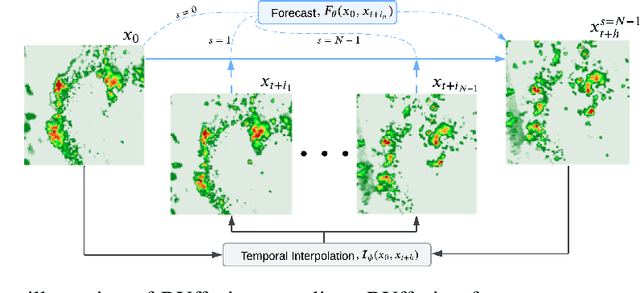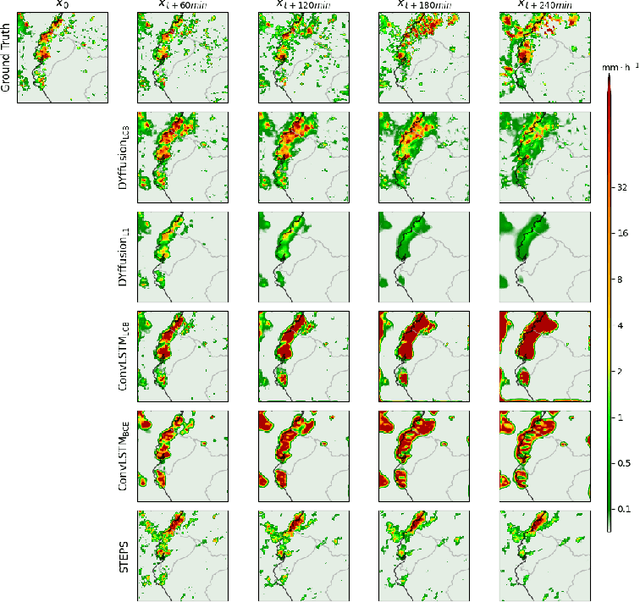DYffCast: Regional Precipitation Nowcasting Using IMERG Satellite Data. A case study over South America
Paper and Code
Dec 02, 2024


Climate change is increasing the frequency of extreme precipitation events, making weather disasters such as flooding and landslides more likely. The ability to accurately nowcast precipitation is therefore becoming more critical for safeguarding society by providing immediate, accurate information to decision makers. Motivated by the recent success of generative models at precipitation nowcasting, this paper: extends the DYffusion framework to this task and evaluates its performance at forecasting IMERG satellite precipitation data up to a 4-hour horizon; modifies the DYffusion framework to improve its ability to model rainfall data; and introduces a novel loss function that combines MSE, MAE and the LPIPS perceptual score. In a quantitative evaluation of forecasts up to a 4-hour horizon, the modified DYffusion framework trained with the novel loss outperforms four competitor models. It has the highest CSI scores for weak, moderate, and heavy rain thresholds and retains an LPIPS score $<$ 0.2 for the entire roll-out, degrading the least as lead-time increases. The proposed nowcasting model demonstrates visually stable and sharp forecasts up to a 2-hour horizon on a heavy rain case study. Code is available at https://github.com/Dseal95/DYffcast.
 Add to Chrome
Add to Chrome Add to Firefox
Add to Firefox Add to Edge
Add to Edge